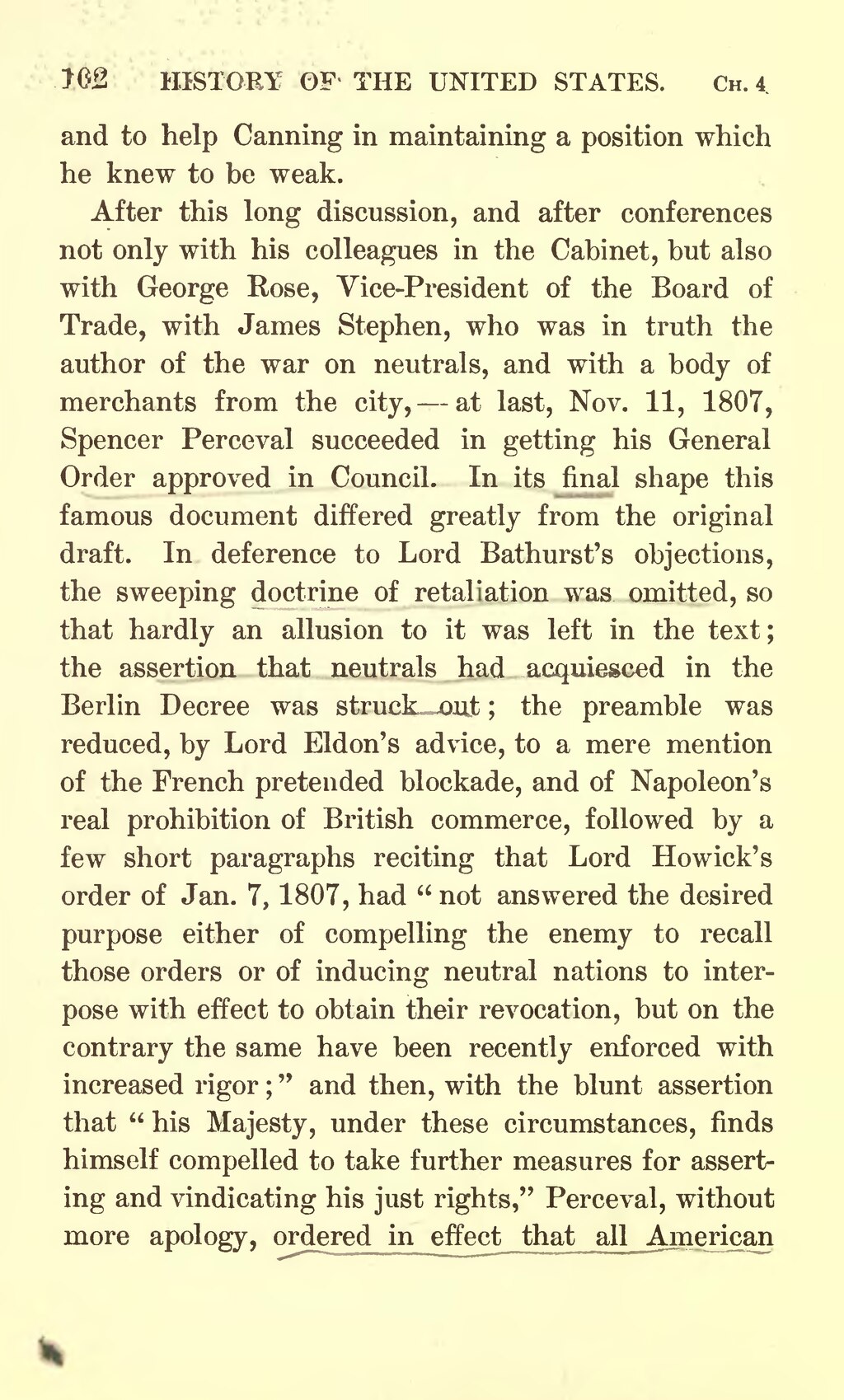and to help Canning in maintaining a position which he knew to be weak.
After this long discussion, and after conferences not only with his colleagues in the Cabinet, but also with George Rose, Vice-President of the Board of Trade, with James Stephen, who was in truth the author of the war on neutrals, and with a body of merchants from the city,—at last, Nov. 11, 1807, Spencer Perceval succeeded in getting his General Order approved in Council. In its final shape this famous document differed greatly from the original draft. In deference to Lord Bathurst's objections, the sweeping doctrine of retaliation was omitted, so that hardly an allusion to it was left in the text; the assertion that neutrals, had acquiesced in the Berlin Decree was struck out; the preamble was reduced, by Lord Eldon's advice, to a mere mention of the French pretended blockade, and of Napoleon's real prohibition of British commerce, followed by a few short paragraphs reciting that Lord Howick's order of Jan. 7, 1807, had "not answered the desired purpose either of compelling the enemy to recall those orders or of inducing neutral nations to interpose with effect to obtain their revocation, but on the contrary the same have been recently enforced with increased rigor;" and then, with the blunt assertion that "his Majesty, under these circumstances, finds himself compelled to take further measures for asserting and vindicating his just rights," Perceval, without more apology, ordered in effect that all American
